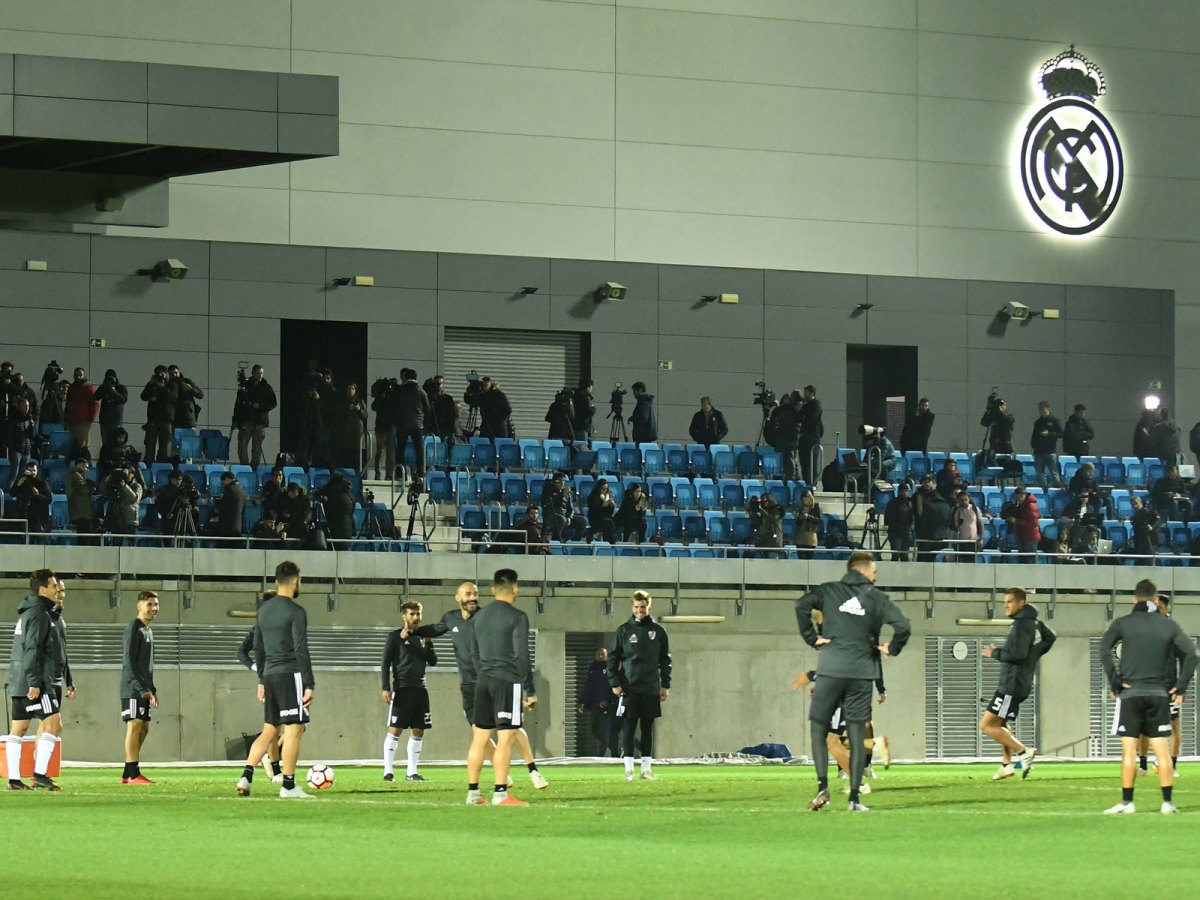Plagued By Chaos, Irony, Protest, Copa Libertadores Will Finally Be Decided in Madrid

Nothing can be taken for granted at this point, but the second leg of the Copa Libertadores final will be played, at last, on Sunday in Madrid. By then, though, the game, which in terms of global profile is the biggest in South American history, will have come to seem almost irrelevant. It has become instead an extraordinary metaphor, a vehicle for exposing the competing forces that shape, for better and mainly worse, the modern sport. How else, after all, could it be that the final of a competition named after the revolutionaries who freed South America from Spanish rule in the 19th century wound up being played in Madrid?
A brief recap: Two years ago, under new president Alejandro Dominguez, CONMEBOL decided it had to take action to try to elevate the Copa Libertadores. Dominguez was clear that closing the gap on the Champions League was impossible, but he could at least run the competition along similar lines and try to raise its profile. The two-legged final will be replaced next season by a one-off showpiece. The climax was moved to November, keeping it apart from the Champions League final and, thanks to the varying daylight saving times, giving it a time slot more comfortable to a global audience. And the regulation that stipulated if two teams from the same country reached the last four they had to play each other in the semifinal was lifted.
WILSON: CONMEBOL Leadership Asserts Itself Too Late in Copa Libertadores
Dominguez saw a Boca Juniors vs. River Plate final as the vindication of his plan–the two biggest teams in South American football, based just eight miles apart, their rivalry legendary on the final stage. The Libertadores suddenly had global appeal. There were a reported 2,500 international media requests for accreditation to the first leg, played at Boca Juniors' home, La Bombonera.
But chaos soon took over. Torrential rain meant the first leg, which ultimately finished 2-2, had to be postponed for 24 hours. It seemed like bad luck but turned out to be a portent of what was to come. On its way to the second leg at El Monumental, Boca’s team bus was attacked by River fans. Windows were smashed and tear gas, seemingly used by police to clear crowds, overwhelmed players, some of whom had also been struck by broken glass. The second leg was initially postponed by an hour, then by two and a quarter hours, then by 24 hours and then, three hours before the putative kickoff on day two, called off entirely.
WILSON: The Complications Surrounding a Libertadores Final Unlike Any Other
Boca claimed the game should be awarded to them, while River argued that as the incidents had taken place outside the stadium they could not be held accountable. CONMEBOL decided the game would be played in time for the Club World Cup, which meant this weekend, but not in Buenos Aires. The great powers wrangled.
No formal list of candidates was ever announced, but it seemed at various points it might be played in Abu Dhabi, where the Club World Cup final will be contested on December 22; or Doha, presumably in part because Boca is sponsored by Qatar Airways; or Paris, because PSG is also sponsored by the Qatari state; or Miami, because of the large Hispanic community there; or Asuncion, because that is where CONMEBOL is based. But in the end Madrid won out, apparently on the basis of a 10-minute conversation between Dominguez and the president of Real Madrid, Florentino Perez.

The optics are terrible. It was never anybody’s intention for it to play out this way, but it’s hard to avoid the symbolism that seems to say South America cannot be trusted to host a game of this magnitude.
“The image of Argentina has been stained for a long time,” River fullback Javier Pinola said this week. “It’s not just this, but with many things that have happened. … We cannot clean that image with what may happen over the weekend. There are deeper things to be able to clean the image of our country. It is a beautiful country, but we are not taking advantage of it.”
The security advantages of not playing the game in Argentina were made clear on Tuesday, when a group of Boca ultras were intercepted at the airport and returned home. Buenos Aires would have been a tinder box. But still, could a similar degree of safety not have been possible in Asuncion, or Montevideo or Santiago, where next year’s final will be played? Was it really necessary to take South America’s competition out of South America and play it 6,000 miles away?
Football, in the worst possible way, is coming home.
